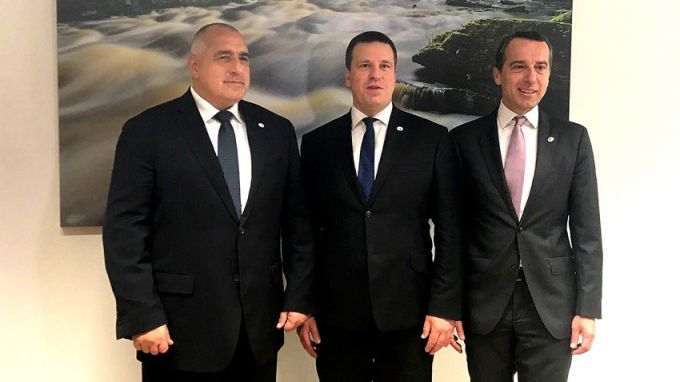
In just a few days, on July 1, Estonia will take over the rotational presidency of the Council of the EU and 6 months later - on January 1, 2018, this responsibility will go to Bulgaria, before the institution becomes headed by Austria. Six months before the challenge preparations in Bulgaria are in full swing. After the relative instability in the period between the second and third governments of PM Boyko Borisov, now Sofia has all the institutional and operational conditions for the task.
The Borisov Cabinet has established a special ministry responsible for the Bulgarian presidency of the Council of the EU in order to address the specific infrastructure issues it brings to this country as well as issues of its coordination with other EU member states. Financing for solving logistical issues has been guaranteed since the start of preparations for the presidency with a three-year financial framework of 150 million leva /75 million euro/. During six months of the Presidency Bulgaria is expected to be visited by over 20,000 experts from all over Europe, which is a good opportunity to present its economic, tourism and cultural potential.
During the six months of the Presidency, some 1500 meetings will take place in Brussels, with an additional 200 experts being prepared for work at the permanent representation of Sofia in the Belgian capital city. Sessions in Bulgaria will be around 200, many of which, especially in February, April and June, will be high-level meetings. To achieve the best effect of the presidency, the government has already started working on its main priorities, which are expected to be clearly defined at the end of this year. However, the main directions of Bulgarian efforts are now clear. First of all, Sofia plans to support the European integration of the Balkan countries and, secondly, to work for enhancing the competitiveness of the European economy by strengthening the economic and monetary union, the single market and supporting entrepreneurship. Bulgaria would also focus on developing EU’s cohesion policy as a major instrument for convergence between Member States.
In the six months that remain until the final priorities of the Bulgarian presidency of the Council of the EU are defined, Sofia will undoubtedly have to prepare for the complex issues that stem from Brexit, the development of the Eurozone, migration policy and others. Preparation is intense and hopes for success are given to Sofia by the joint program of Estonia, Bulgaria and Austria, adopted at the end of last week, focusing on the priorities of the European Union over the next 18 months. In general terms, the program focuses on security and strengthening of EU’s external borders, economic growth and competitiveness, as well as the stabilization of the Union's neighboring regions.
In Brussels the prime ministers of the three countries agreed that each one of the countries will stick to the priorities but will remain flexible in order to be able to respond adequately to unforeseen situations. Preparations for the upcoming rotational presidency have started.
English version: Alexander Markov
The economic and financial debate is key for the current European Parliament session . This is the opinion of Bulgarian MEP from the European People's Party Andrey Kovatchev, who is a member of the EP's Foreign Affairs Committee. "The topic does not..
Bulgaria must receive targeted defense funding. This is what Bulgarian MEP from the European People's Party Andrey Novakov has requested from the new EC Defense Commissioner. In addition to the topic of the tariffs that US President Donald Trump..
Türkiye commemorates the victims of the devastating earthquakes of 2023 Türkiye honored the memory of the victims of the earthquakes of February 6, 2023, when 7.7-magnitude tremors in southeastern Turkey levelled entire..

+359 2 9336 661
